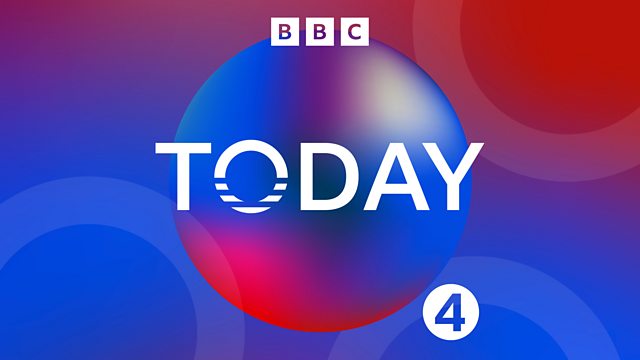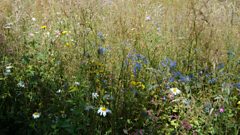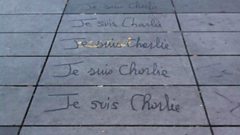
10/01/2015
Morning news and current affairs. Including Yesterday in Parliament, Sports Desk, Thought for the Day and Weather.
Last on
Clips
-
![]()
'Extraordinary' increase in plants
Duration: 01:54
-
![]()
Paris gunman was 'very calm' on phone
Duration: 03:07
-
![]()
Week of 'sustained pressure' for A&E units
Duration: 03:36
Today's running order
0710
Jim Naughtie reports on the tumultuous events of the last three days in Paris with our correspondent Chris Morris, as police continue to scour the city for the female friend of the hostagetaker.
0715
It has been one of the worst weeks ever for NHS hospitals. 17 hospital trusts declared major incident status because they were struggling to cope with the number of people coming in. We hear from Tim Williams, the overnight medical registrar at St Peter's Hospital in Chertsey.
0723
The textbooks say that twenty or thirty plants should be in flower over New Year. But a survey conducted by the Botanical Society of Britain and Ireland has come up with 368 ----- a big increase on last year and another reflection of the warm weather that's characterised the last year. We hear from Dr Tim Rich
0733
Public sector workers in key services like health, education and transport would only be able to go on strike if 40 per cent of those balloted by a trade union supported industrial action, under Conservative plans announced today. The new measure is in addition to a previous Tory proposal that would require at least half of union members to cast a vote for a strike to go ahead. We hear from Patrick McLoughlin, the Transport Secretary and Frances O'Grady, TUC General Secretary.
0742
When Addenbrookes hospital declared a major incident this week they said that 20% of their patients had finished their treatment and didn't need to be there but - for various reasons - they were waiting to be discharged. Those already occupying beds, especially the old or frail cannot be quickly or easily discharged. Such patients may need support at home -聽 they may be anxious about returning to independent life after many weeks in the hospital. At St Peters one charity provides a support service to help as Sanchia Berg has been finding out.
0749
The French prime minister, Manuel Valls, said last night that with 17 people dead there had聽 been a 'clear failing' of intelligence in France. The two killers at Charlie Hebdo, now dead, were on European and American no-fly lists and had a history of extremism. And President Hollande said on television last night that France had to be vigilant. That isn't a message that's confined to France. These tragic days are also a warning. We're joined by Wil Van Gemert, Deputy Director of Operations at Europol and Dr Shimon Samuels, Director of International Relations at the Simon Wiesenthal Centre.
0810
With the dramatic events of the last few days finally over, now is the time for reflection. And questions are bound to be asked about why French Muslims would carry out these acts. There are fears that this will exacerbate tensions in France between Muslims and the extreme right. Our reporter Beth McLeod went to the town of Aubervilliers in the outskirts of Paris, which has a large Muslim population. We also hear from our correspondent Lucy Williamson, and Pierre Lequillier, UMP member of Parliament and Vice-President of the Commission for Foreign Affairs.
0821
The problems many hospitals are facing in A&E are a result of various pressures in other departments. Our reporter Sima Kotecha spent the afternoon yesterday finding out what some of those pressures are. We hear from Suzanne Rankin, CEO of Ashford and St Peter's Hospitals NHS Foundation Trust.
0835
We hear from Igor Sahiri, journalist and reporter at BFM TV, and Patrick Klugman, Deputy Mayor of Paris.
0848
It has been one of the worst weeks ever for NHS hospitals. 17 hospital trusts declared major incident status because they were struggling to cope with the number of people coming in. We hear from Helen Cannon, lead A&E consultant at St Peter's, and Sarah Moth, a senior nurse who has worked in the department for 27 years.
0855
Researchers at Liverpool School of Tropical Medicine believe that are not that far away from developing Africa's first affordable universal anti snake venom. Currently, certain countries have many different deadly snakes and it's often difficult to guess which one had bitten a patient so doctors administer multiple vials which increases the risk of side effects. It's believed that snake bites kill roughly thirty thousand people per year in the region. To create the medicine, scientists are squeezing venom from the fangs of more than four hundred snakes at the Liverpool Venom Research Unit. We hear from Dr Rob Harrison, lead researcher on developing universal anti-snake venom at Liverpool School of Tropical Medicine.
Broadcast
- Sat 10 Jan 2015 07:0091热爆 Radio 4



